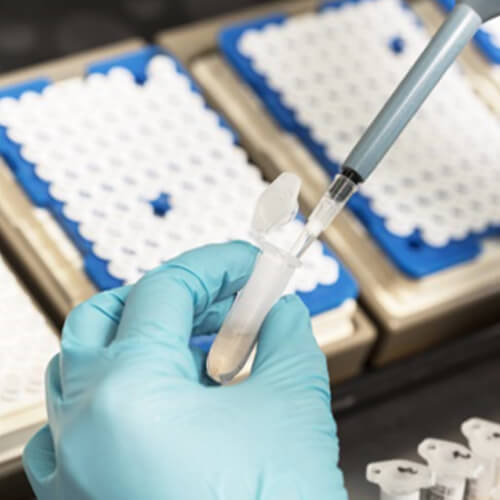An Introduction of Dipeptide
A Peptide is a constituent fragment in the structure of a protein and is linked by an amide bond from an amino acid with a certain sequence. A dipeptide is a sometimes designation of two kinds of compounds: its molecules contain either two amino acids joined by a single peptide bond or one amino acid with two peptide bonds. The dipeptide can protect DNA, and it has the function of anti-oxidation, anti-carboxylation, anti-glycation and so on. DNA mainly dominates the life of cells through genetic blueprints, directs cell activity and somatic development. So the appearance of each one is different. However, DNA is easily invaded by the external environment, such as free radicals, stress, pollution and ultraviolet rays. Once the DNA is destroyed, the body cells will appear and the skin tissue will have problems. The main effect of the dipeptide is to protect DNA, against cell aging.
The factors of Aging
The aging, wrinkles, and faintness of human skin are caused by various factors inside and outside. Excessive sunlight (ultraviolet) exposure is only one of the important external factors. Besides, there are also other factors, such as epidermal renewal, dermal foreign chemical clearance, dermal thickness, immune response temperature regulation as well as chemical clearance. The main reason for aging is that free radicals in the body destroy normal cell behavior and accelerate cell aging, so scavenging or inhibiting free radicals can prevent or alleviate skin aging.
The Effect and Application of Dipeptide-4
The dipeptide-4, as a kind of dipeptide, is also called Phenylalanyltryptophan or L-PHENYLALANYL-L-TRYPTOPHAN. Dipeptide-4 is a synthetic dipeptide consisting of cysteine and glycine. It has an excellent ability of emulsifying, dispersing, anti-oxidation, wetting and penetrating, so it can as an antioxidant, conditioner, etc. In addition, it has good compatibility with the skin and is easily absorbed, so it is often used in the field of personal care products. Dipeptide-4 protects the skin from environmental stress and skin glycosylation, thus it helps create special effects on the skin to maintain the skin in a good condition. Most of the peptides are unstable in nature, so the storage temperature should be 2-8℃ during common storage and -20℃ during long-term storage.
References
1. Huang X C, Wang M, Wang H S, et al. Synthesis and antitumor activities of novel dipeptide derivatives derived from dehydroabietic acid [J]. Bioorganic & medicinal chemistry letters, 2014, 24(6): 1511-1518.
2. JONES J H, RAMAGE W I, WITTY M J. Mechanism of racemization of histidine derivatives in peptide synthesis [J]. International journal of peptide and protein research, 1980, 15(3): 301-303.
3. Tomlinson P J, Johnson M, Bell M D. Skin Care Composition: U.S. Patent Application 15/312,086 [P].2017-4-27.
4. Sweeney S, Khoury F H. Topical Skin Care Composition for Day Use: U.S. Patent Application 14/814,243[P].2017-2-2.










